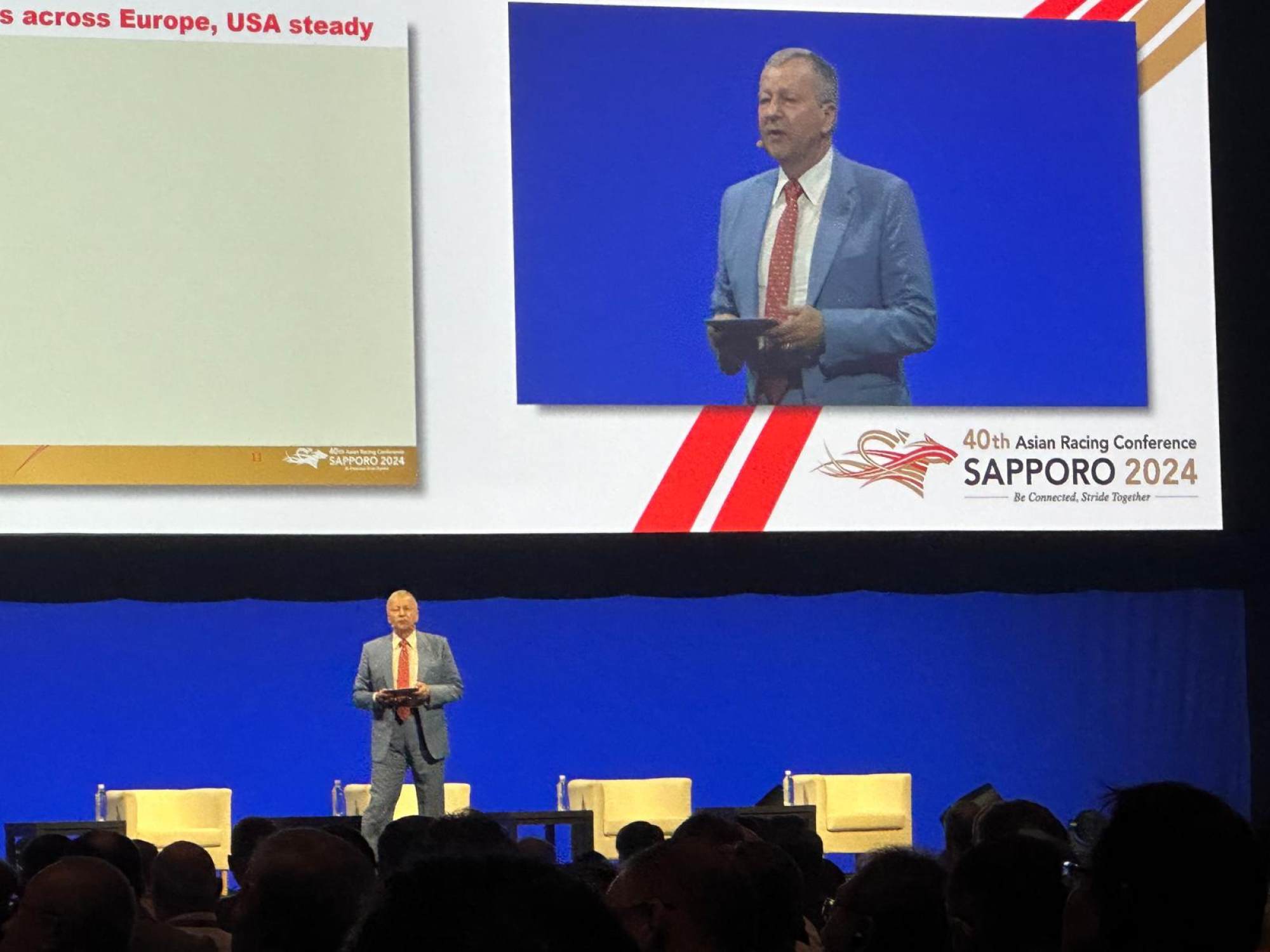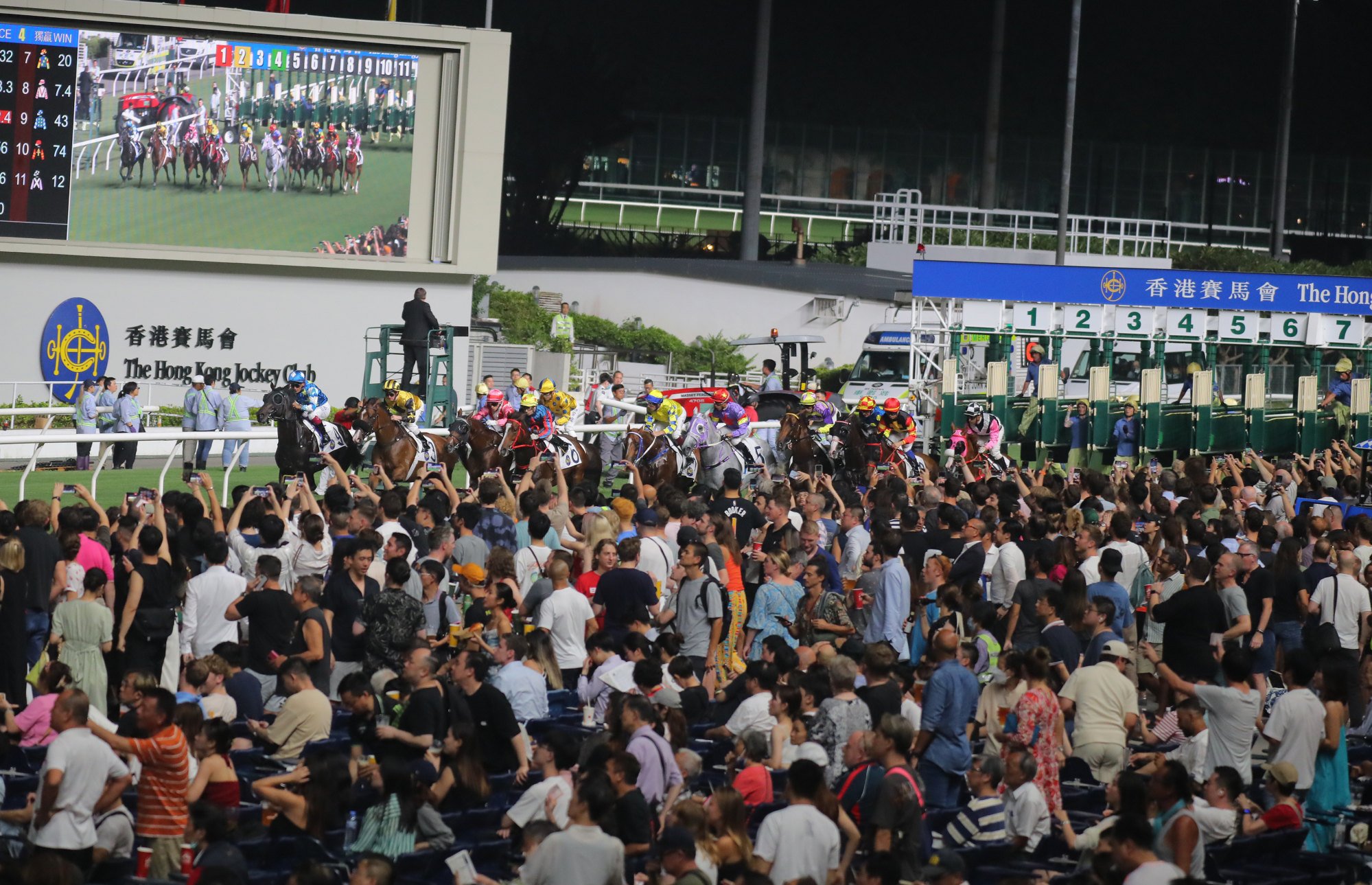Racing New South Wales CEO Peter V’Landys said the Hong Kong Jockey Club’s (HKJC) World Pool could “save racing”, as the Asian Racing Conference (ARC) got under way in Sapporo on Wednesday.
Industry fragmentation was presented as one of the biggest issues facing the sport, with the ever-growing World Pool – which combines tote pools from around the globe to ensure increased liquidity for punters – one thing bringing jurisdictions together.
V’Landys said he was a “firm believer in the tote funding the industry more than any other form of wagering” and highlighted the potential of the World Pool’s exotic bets in combating the sustained competition racing turnover is facing from sports wagering.
“I think [the World Pool] has the potential to save world racing because it really highlights the major events in every country, it puts the focus on that event and punters from all around the world can bet on that particular race,” he added.
 Winfried Engelbrecht-Bresges on stage at the 40th Asian Racing Conference in Sapporo.
Winfried Engelbrecht-Bresges on stage at the 40th Asian Racing Conference in Sapporo.
“I think the big winner for the World Pool is that it will keep jurisdictions who may be finding it tough active around the world and make people viable. The big advantage is liquidity. If there is liquidity and the big punters come into it, it doesn’t really affect the dividends of the smaller punters.”
At a time when betting turnover in places such as Australia and Hong Kong has softened post-pandemic amid global economic challenges, racing’s share of the sports-betting pie continues to shrink – down from 43 per cent in 2020 to 34 per cent in 2023 with a forecast of further decline.
After telling around 800 guests from 40 countries at Tuesday night’s opening ceremony that racing was “at a critical juncture”, HKJC supremo Winfried Engelbrecht-Bresges laid bare the industry’s biggest challenges as the conference began on Wednesday.
“Customer behaviour has changed fundamentally and that sets the stage for what I would suggest are the major challenges we have to address,” said Engelbrecht-Bresges, who was re-elected as Asian Racing Federation chairman on the eve of the ARC.
“We are still in the stage where we are not ill. Are we healthy, if you look at the commercial sustainability of the sport? I have some concern.
“What are our focus areas for the briefing here? One aspect is industry fragmentation, the second is social acceptability, the third is the growth of illegal and offshore betting and number four is the longer-term sustainability of the sport, which is at risk due to an ageing customer base.”
 Horse racing must foster a younger fan base.
Horse racing must foster a younger fan base.
Engelbrecht-Bresges highlighted the well-publicised divide between New South Wales and Victoria, but said he was optimistic racing could come together as an industry, with V’Landys echoing his thoughts.
“I think Winfried hit the nail on the head. We have competition outside, that’s our competition, yet we seem to fight among ourselves all the time,” V’Landys said.
“If we unite as an industry, we should be taking sports betting on, we should be taking other forms of entertainment on. But what are we focused on? Fighting among ourselves. The sooner we stop doing that and sabotaging ourselves, the better the industry will be.”
Racing’s social licence is continually under fire and Engelbrecht-Bresges highlighted the importance of using science and technology to decrease horse breakdown rates, while the aftercare of gallopers was brought into sharp focus by the International Forum for the Aftercare of Racehorses in Sapporo a day earlier.
“We are, in some countries, at a very critical juncture. There are more extreme groups who attack the sport and the key focus which we as a sport have to address and minimise is the catastrophic breakdown of horses and exercised-induced sudden death,” he said.
How racing can properly tell its story to change public perception will be high on the agenda during the ARC, as will engaging younger audiences, innovation in betting, the threat of illegal wagering and integrity.
“We will explore all these challenges in a much more holistic way and I strongly feel we have to embrace change and we have to make quicker progress,” Engelbrecht-Bresges said.
“The focus should be on how we can collaborate more, how we can overcome fragmentation of the industry and how we can have a joint approach to address animal welfare issues and how we work together to become more socially acceptable as a sport.”





















